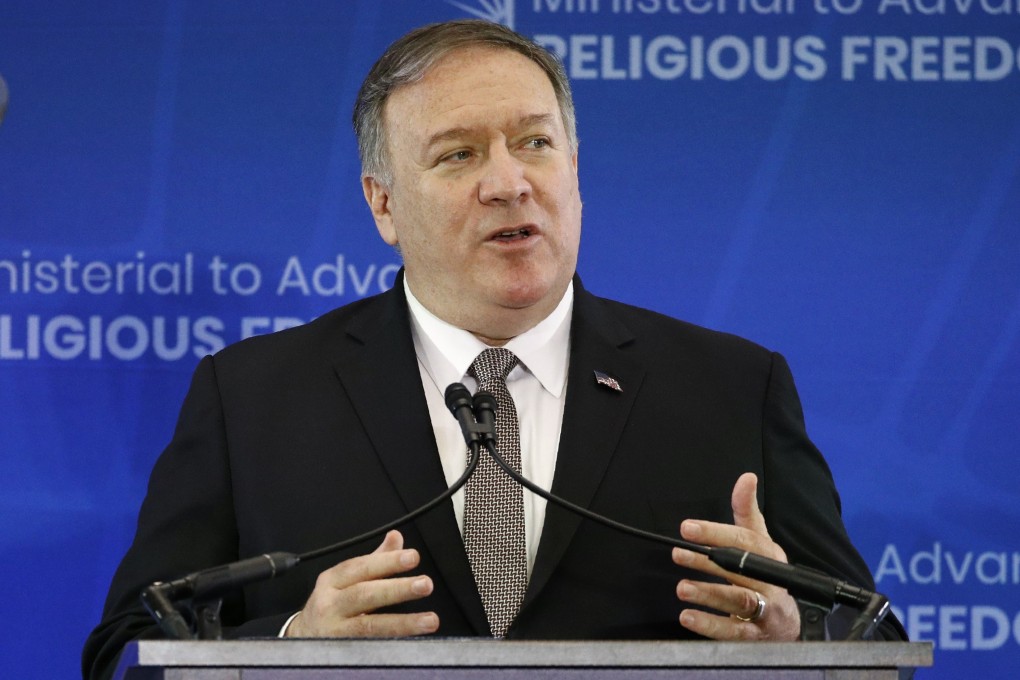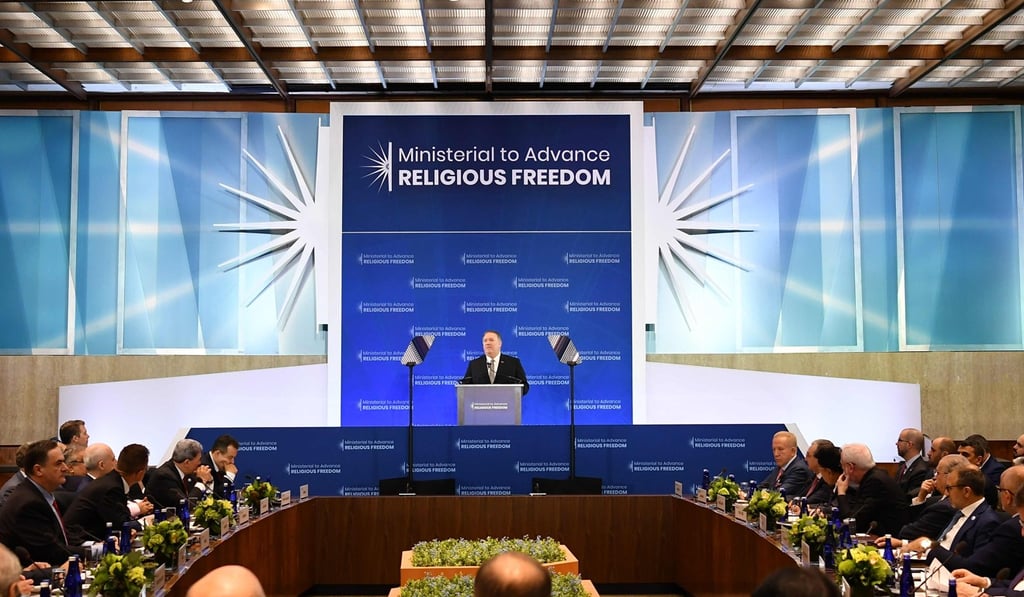‘Stain of the century’: top US diplomat Mike Pompeo lashes out at China over treatment of Uygurs
- US secretary of state insists Beijing pressured countries into not attending a conference on religious freedom in Washington, but does not say which ones
- He accuses China’s government of demanding control ‘over the lives of the Chinese people and their souls’

China’s mass internment of Uygurs and other Muslim ethnic minorities is “the stain of the century”, US Secretary of State Mike Pompeo said on Thursday.
Speaking in Washington at a government-hosted conference on global religious freedom, Pompeo accused Beijing of demanding control “over the lives of the Chinese people and their souls” and said its policies in the country’s northwest had resulted in “one of the worst human rights crises of our time”.
More than 1 million Uygurs and other Turkic Muslim ethnic groups are reported to be held in a network of extrajudicial camps in the Xinjiang Uygur autonomous region, a programme that began in early 2017.
Beijing maintains the institutions are vocational centres where attendees receive classes in Chinese language and law – a claim challenged by a growing body of research that indicates the camps are high-security facilities where inmates are held against their will.

Pompeo’s condemnation of the camps at the Ministerial to Advance Religious Freedom was buttressed by Vice-President Mike Pence, who said the detainees were subject to “around-the-clock brainwashing” and echoed survivors’ accounts that the institutions were designed to “strangle Uygur culture and stamp out the Muslim faith”.